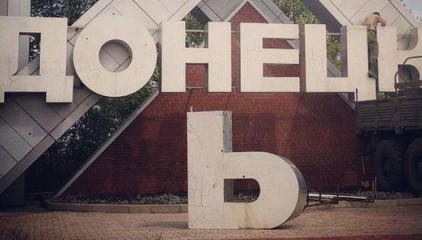First, there are many "legitimate" uses for loanwords, especially the proper names like family names, toponyms, etc. For example, the Russian Prime Minister President Prime Minister's family name Rus.Медведев is written Медведєв in Ukrainian, and there are plenty of uses like Мєдвєдєв, which is arguably a better match with the original phonology:
Прем'єр РФ Мєдвєдєв пропонує перейменувати «американо» на «русіано» — Hromadske TV
###But yes, you've noticed a rather popular phenomenon.
But yes, you've noticed a rather popular phenomenon.
Cacography is deliberate misspelling intended to convey humorous sense or just exaggerating someone's style or illiteracy.
See also Sensational spelling. It has similar effect, but using literate, but rare or dialectal spelling of a word or phrase.
In this particular case, some Ukrainian speaker is ridiculing about someone who speaks Russian or a Surzhyk.
This phenomenon has risen a lot since the times of Russian armed invasion to Ukraine, where one of the Russian self-excuses was "Defending the Russian-speakers" (of Ukraine). In reality, the first thing the occupants have done is they began a forced russification on the occupied territories.
The following photo shows a road sign at the entry to Donets'k city after the forced russification by the occupants; they have removed the "soft sign", and «ДОНЕЦЬК» became «ДОНЕЦК».
And, most obviously, this forced russification has naturally caused resistance among the Ukrainians, even the Russian-speaking ones. They started mocking the Russian language as in your example.
###Usage guides
Usage guides
So, since the phenomenon is not linguistic, but rather political and social, I would not recommend a language learner to use it, unless you know what you are doing.
From the linguistic point, Cacography is a power tool, but also it's like a "thin ice"; it is easy to "slip off" the right track:
- do it less than needed, and you look like an illiterate person;
- do it more than needed, and you end up writing something incomprehensible.
